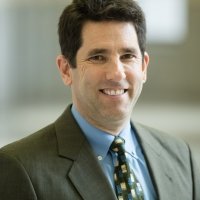Ground Truth Briefing: U.S. Interests and Engagement in the Sahel: Current State, Key Issues, and the Way Ahead

On September 24, 2020, the Wilson Center Africa Program hosted a Ground Truth Briefing on “U.S. Interests and Engagement in the Sahel: Current State, Key Issues, and the Way Ahead.” The teleconference featured Dr. J. Peter Pham, U.S. Special Envoy for the Sahel Region of Africa, who provided an update on the current U.S. interests and engagement in the Sahel, gave insights into the key issues facing the region and what the United States is doing to address them, and described what he sees as the way forward for addressing insecurity in the region. Mr. Michael Morrow, Senior Diplomatic Fellow, Wilson Center Africa Program, moderated the event, which was attended by 250 people including U.S., African, and international policymakers, practitioners, experts, and other stakeholders.
Dr. Pham’s remarks focused on the Department of State’s diplomatic framework for the Sahel, which works to better coordinate U.S. and international support for the efforts of West African governments to address violence and instability in the Sahel. He elaborated on the 4 key mandates of his role as Special Envoy for the Sahel: improving coordination both within the U.S. government interagency and with regional and international partners and organizations, helping to promote stability in Mali, pressing for increased state legitimacy across the region, and avoiding the spillover of instability. Dr. Pham reiterated that the United States condemns the actions of August 18 in Mali, and continues to support the Economic Community of West African States and the G5 Sahel in calling for a restoration of constitutional governance, timely elections, and a civilian-led transition. He also noted that the region is suffering from a serious humanitarian situation, with millions displaced or in need of assistance. Dr. Pham announced that the United States would provide $152 million in new humanitarian assistance funding for Niger, Mali, Mauritania, and Burkina Faso—noting that none of these funds would go to the de facto authorities in Mali. Throughout his remarks, Dr. Pham emphasized the depth of U.S. engagement in the region, holding up the diplomatic framework and the creation of the Special Envoy position as evidence of the United States’ enduring commitment to the countries of the Sahel.
After his opening remarks, Dr. Pham engaged with Mr. Morrow and the audience in a moderated question and answer session. Some of the questions for Dr. Pham focused on the ongoing review of the U.S. military posture in Africa, the impact of moving the U.S. Africa Command out of Stuttgart, the role of U.S. leadership vis-à-vis European engagement in the Sahel, the role of North African countries, engagement with Chad, and the rule of law in Mali. Other participant questions focused on African perspectives on insecurity in the Sahel and U.S. engagement; violence in Cameroon; elections in Western Sahara; the importance of youth, food security, and climate change; French military engagement; the role of Turkey, Russia, and China; comparisons with issues facing the Great Lakes Region of Africa; and recent successes in Mauritania and Niger.
Selected Quotes
Dr. J. Peter Pham
“At the heart of the crisis in the Sahel, I believe, it’s ultimately a crisis of the state’s legitimacy. That is, whether or not citizens perceive that their government is legitimate, equitable, and able and willing to meet their needs. This includes ensuring justice and accountability for human rights violations and abuses committed by security forces. Without such a commitment, no degree of international engagement is likely to succeed. If states, especially security forces, continue to commit human rights violations or abuses it undermines their credibility with their own citizens and thus undermines their ability to counter violent extremism.”
"More than 2.5 million people in the Sahel region are displaced, 3.3 [million] are in need of humanitarian assistance and protection services, and the United States is proud to be the largest donor of humanitarian assistance to the region. And I'm pleased to announce today that the U.S. government is contributing nearly $152 million in additional humanitarian assistance… Let me add that none of this humanitarian assistance will go to the de facto authorities in Mali.”
“Africa is 55 states, each different with its own regions, with its own nuances, so everything is always going to be different. Some things are similar, that is the nature of things, but I would say probably the greatest difference, other than meteorological, is probably the level of the extremist threat. It is growing, certainly in the Great Lakes Region… Thank God it's not at the level it is in the Sahel, with both Al Qaeda and Daesh-affiliated groups running amuck around the region. So I would say that would be the biggest challenge that is different between the two regions.”
“I would applaud President Issoufou for the fact that he is planning on stepping down—there is an open seat to be filled next year—bucking the trend of third-termism or prolonging his days and [respecting] the constitutional limits and move on. When that occurs in Niger, it’s going to be the first ever in the country's history of an elected president ceding power to whoever is elected his successor. That's a historic moment in the country's history and it’s a good characteristic to be encouraged.”
Speaker
Moderator

Senior Foreign Service Officer, U.S. Department of State
Hosted By

Africa Program
The Africa Program works to address the most critical issues facing Africa and US-Africa relations, build mutually beneficial US-Africa relations, and enhance knowledge and understanding about Africa in the United States. The Program achieves its mission through in-depth research and analyses, public discussion, working groups, and briefings that bring together policymakers, practitioners, and subject matter experts to analyze and offer practical options for tackling key challenges in Africa and in US-Africa relations. Read more
